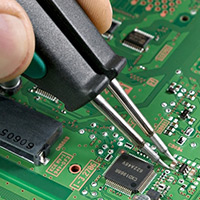

The Wonders of Aluminum Mirrors
Aluminum mirrors represent a fascinating intersection of material science, technology, and practical application. Their unique properties make them a popular choice across various fields, ranging from astronomy to everyday household use. In this article, we will explore the characteristics of aluminum mirrors, their applications, and the advantages they offer.
Characteristics of Aluminum Mirrors
Aluminum mirrors are produced by coating a substrate, typically glass or plastic, with a thin layer of aluminum. The reflective nature of aluminum comes from its ability to reflect a significant portion of visible light, while also offering reflectivity in the infrared spectrum. Generally, aluminum mirrors can achieve reflectivity levels between 85% to 95%.
One of the most significant features of aluminum mirrors is their light weight compared to other mirror materials, such as silver or gold. This makes them easy to handle and install, reducing the overall cost of support structures in applications where weight is a critical factor. Furthermore, aluminum is corrosion-resistant and can maintain its reflective properties over time, making aluminum mirrors a durable option for various environmental conditions.
Applications of Aluminum Mirrors
The versatility of aluminum mirrors allows for a wide range of applications. One of the most notable uses is in the field of astronomy, where they are employed in telescopes. Aluminum mirrors are advantageous in telescopes intended for both optical and infrared astronomy. Their ability to reflect both visible and infrared light allows astronomers to observe celestial bodies across different spectra, which can yield valuable data about the universe.
In the automotive industry, aluminum mirrors are commonly used in rearview mirrors and side mirrors, providing the necessary visibility while contributing to the sleek and lightweight design of vehicles
. Additionally, aluminum mirrors are utilized in the manufacturing of reflectors for headlights, improving the overall safety and performance of vehicles during nighttime driving conditions.
Aluminum mirrors also find their place in numerous applications in the lighting industry. The reflectors in spotlights, floodlights, and stage lights often use aluminum mirrors, as they effectively redirect light and enhance the intensity of illumination. This usage is particularly important in theatrical productions, where precise lighting is crucial for creating the right atmosphere.
Another emerging application is in the realm of solar energy. Aluminum mirrors are being employed in concentrated solar power systems, where they reflect and focus sunlight onto a small area to generate heat. This heat can then be used to produce electricity via steam turbines. By harnessing the sun's energy efficiently, aluminum mirrors play a crucial role in the transition toward renewable energy sources.
Advantages of Aluminum Mirrors
There are several advantages to using aluminum mirrors. Their cost-effectiveness is one of the most notable benefits. Aluminum is less expensive than other metals traditionally used for mirrors, such as silver or gold. This property allows for the mass production of mirrors at a lower cost, making them accessible for a variety of applications.
Additionally, aluminum mirrors are relatively easy to manufacture and can be produced in large quantities. This ability to scale production ensures that a consistent and high-quality product is available for various industries. The lightweight nature of aluminum mirrors not only makes them easier to transport but also enables innovative designs in various technological applications.
Finally, the reflective qualities of aluminum mirrors can be enhanced through the addition of protective coatings. These coatings help to improve durability while maintaining high reflectance, ensuring that the mirrors perform reliably over time.
Conclusion
Aluminum mirrors exemplify the remarkable advancements in material science and engineering. Their unique properties make them indispensable in various fields, from astronomy to automotive design and renewable energy solutions. As technology continues to evolve, aluminum mirrors will likely see even broader applications, further cementing their value in our daily lives and the high-tech landscape. The future holds great promise for this versatile material, proving that something as simple as a mirror can have far-reaching implications.